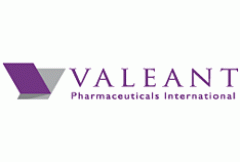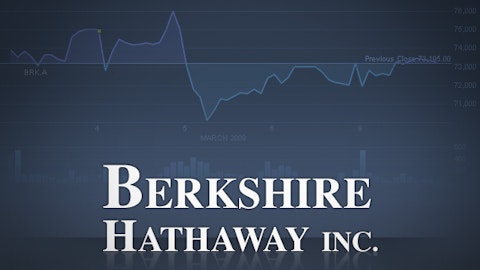For years, satirical late-night TV host Stephen Colbert has been running a series on his show called “Better Know a District,” which highlights one of the 435 U.S. congressional districts and its representative. While I am no Stephen Colbert, I am brutally inquisitive when it comes to the 5,000-plus listed companies on the U.S. stock exchanges.
That’s why I’ve made it a weekly tradition to examine one seldom-followed company within the Motley Fool CAPS database and make a CAPScall of outperform or underperform on that company.
For this week’s round of “Better Know a Stock,” I’m going to take a closer look at Raptor Pharmaceutical Corp. (NASDAQ:RPTP).
What Raptor Pharmaceuticals does
Raptor Pharmaceutical Corp. (NASDAQ:RPTP) is a biopharmaceutical company focused on treating both ultra-orphan and chronic diseases. The company currently has one drug approved by the Food and Drug Administration called Procysbi for the treatment of nephropathic cystinosis, and is testing RP-103 (the scientific name for Procysbi) in mid- and late-stage trials for the treatment of nonalcoholic fatty liver disease and Huntington’s disease, with data due out for both indications in 2014. Its other clinical-stage drug is Convivia, which is licensed out to Uni Pharma and is currently in mid-stage trials for ALDH2 deficiency.

Whom it competes against
Here’s the good news: Raptor Pharmaceutical Corp. (NASDAQ:RPTP)’ Procysbi is pretty much in the clear when it comes to competition for a while. Having received orphan drug status, it will not have any competition for at least seven years in the U.S., and looks to be on its way to an approval in Europe after receiving a positive opinion from the European Medicine Agency’s panel.
Raptor Pharmaceutical Corp. (NASDAQ:RPTP)’s remaining pipeline has all-or-nothing potential. Take RP-103 for Huntington’s disease as a perfect example. Right now, treating HD — an inherited and rare neurodegenerative disorder that leads to degeneration in the cerebral cortex and basal ganglia — is done simply on a symptomatic basis. There is no cure, just palliation of the symptoms. This means Valeant Pharmaceuticals Intl Inc (NYSE:VRX) and GlaxoSmithKline plc (ADR) (NYSE:GSK)‘s Xenazine, which is approved to treat chorea (an involuntary muscle movement) associated with HD, is often used to treat the motor aspects of the disease. The need for mood-stabilizing, or antidepressant drugs like Forest Laboratories, Inc. (NYSE:FRX) now generic Lexapro, are also commonly prescribed for HD patients. RP-103, since it has demonstrated the potential for blood-brain barrier transcendence, has an actual shot at alleviating the cause of the disease, and not just focusing on the symptoms.
The call
After carefully reviewing the prospects on Raptor Pharmaceutical Corp. (NASDAQ:RPTP), I’ve decided to make a CAPScall of underperform on the company.
I don’t make a CAPScall of underperform without some hesitation here as ultra-orphan drug companies are well protected by patents for many years, and they can easily garner six-digit annual price tags for their therapies. However, valuation stands out as a very large concern given the maximum potential of Procysbi in nephropathic cystinosis.
The total number of people who’ve been diagnosed with nephropathic cystinosis is only estimated at 2,000 worldwide with roughly 500 of those persons in the U.S. In a best case scenario, Raptor is going to generate $60 million in peak sales in the U.S. and perhaps another $50 million-$60 million in Europe (assuming it’s approved). At its current market value of $700 million, it’s valued at somewhere between five and six times the peak sales estimates of Procysbi, worldwide. That seems particularly rich, all things considered.
Another factor that gives me cause to pause on Raptor is its mid- and late-stage studies. At its current price, investors appear to be pricing in moderate success for RP-103 in treating HD and nonalcoholic fatty liver disease. The concern I have with HD is the same concern I have with any drug designed to treat disease of the brain — they rarely work. The blood-brain barrier is largely a mystery, and, as a good example, nearly every Alzheimer’s drug that’s worked its way into late-stage trials in recent years has gone belly up. Eli Lilly & Co. (NYSE:LLY)‘s solanezumab may ultimately show a benefit in fairly early stages of Alzheimer’s, but it failed to meet its primary endpoint in late-stage studies last year. The same goes for Pfizer and Johnson & Johnson‘s bapineuzumab, which also failed in multiple late-stage trials. The track record for success isn’t high, and investors should keep that in mind when properly valuing Raptor.
Unless Raptor Pharmaceutical Corp. (NASDAQ:RPTP) really stuns me with its nonalcoholic fatty liver disease trial, then I’m not going to be very supportive of its current pricing. Trading at more than five times peak sales is a level that I feel wouldn’t even attract the most desperate of big pharmaceuticals companies looking to nab growth prospects through an acquisition. My suggestion is to keep on moving until either Raptor gets significantly cheaper or reports fantastic NAFLD data in 2014.
The article CAPScall of the Week: Raptor Pharmaceuticals originally appeared on Fool.com and is written by Sean Williams.
Fool contributor Sean Williams has no material interest in any companies mentioned in this article. You can follow him on CAPS under the screen name TMFUltraLong, track every pick he makes under the screen name TrackUltraLong, and check him out on Twitter, where he goes by the handle @TMFUltraLong.The Motley Fool owns shares of, and recommends Johnson & Johnson.
Copyright © 1995 – 2013 The Motley Fool, LLC. All rights reserved. The Motley Fool has a disclosure policy.




